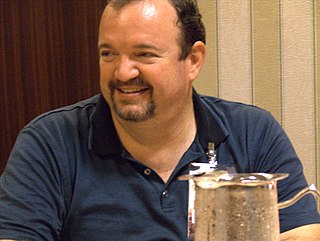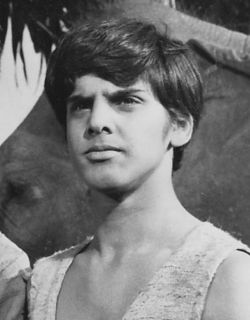A Quote by Dawn French
We have to do a film parody for Comic Relief. We can't decide which film to parody at the moment. Any ideas welcome, but not Spiderman owing to costume being too tight.
Related Quotes
It's far easier to write why something is terrible than why it's good. If you're reviewing a film and you decide "This is a movie I don't like," basically you can take every element of the film and find the obvious flaw, or argue that it seems ridiculous, or like a parody of itself, or that it's not as good as something similar that was done in a previous film. What's hard to do is describe why you like something. Because ultimately, the reason things move people is very amorphous. You can be cerebral about things you hate, but most of the things you like tend to be very emotive.
The first piece of 'long' fiction I wrote was a novella parody of Stephen King's 'Christine.' I was in high school, and my version was about a kid with a possessed locker instead of a possessed car. It was also my first attempt at humour, which fell completely flat because no one who read it realized it was a parody!
The genius of the Marx Brothers is for parody. They never are themselves. They exist too abundantly to be content with being that - they must go on, by the rapidest of transitions, to being something else. Groucho, in my opinion the bright star among the three, is never anything but the thing he is at the moment pretending to be.
There's a lot of different ways that a song would be a challenge to parody. There are a lot of songs that would ostensibly be a good candidate for parody, yet I can't think of a clever enough idea. Some songs are too repetitive for me to be able to fashion a humorous set of lyrics around. Some songs flat-out just don't work creatively for me.
I just think that the world of workshops - I've written a poem that is a parody of workshop talk, I've written a poem that is a kind of parody of a garrulous poet at a poetry reading who spends an inordinate amount of time explaining the poem before reading it, I've written a number of satirical poems about other poets.
The brilliant costume designer Mary Zorphres had done all this research on West Texas in 1980. Every woman looked like that. At a certain age, they would get their hair cut off, let the gray go in, get that permanent, and wear those big glasses. She gave me a beanie bra so my boobs would hang down, and these old dresses. My hat's off to her, because I thought it was perfect for the movie. It was so great to have some comic relief right at that moment. No Country For Old Men is such an intense film.
African films should be thought of as offering as many different points of view as the film of any other different continent. Nobody would say that French film is all European film, or Italian film is all European film. And in the same way that those places have different filmmakers that speak to different issues, all the countries in Africa have that too.


































